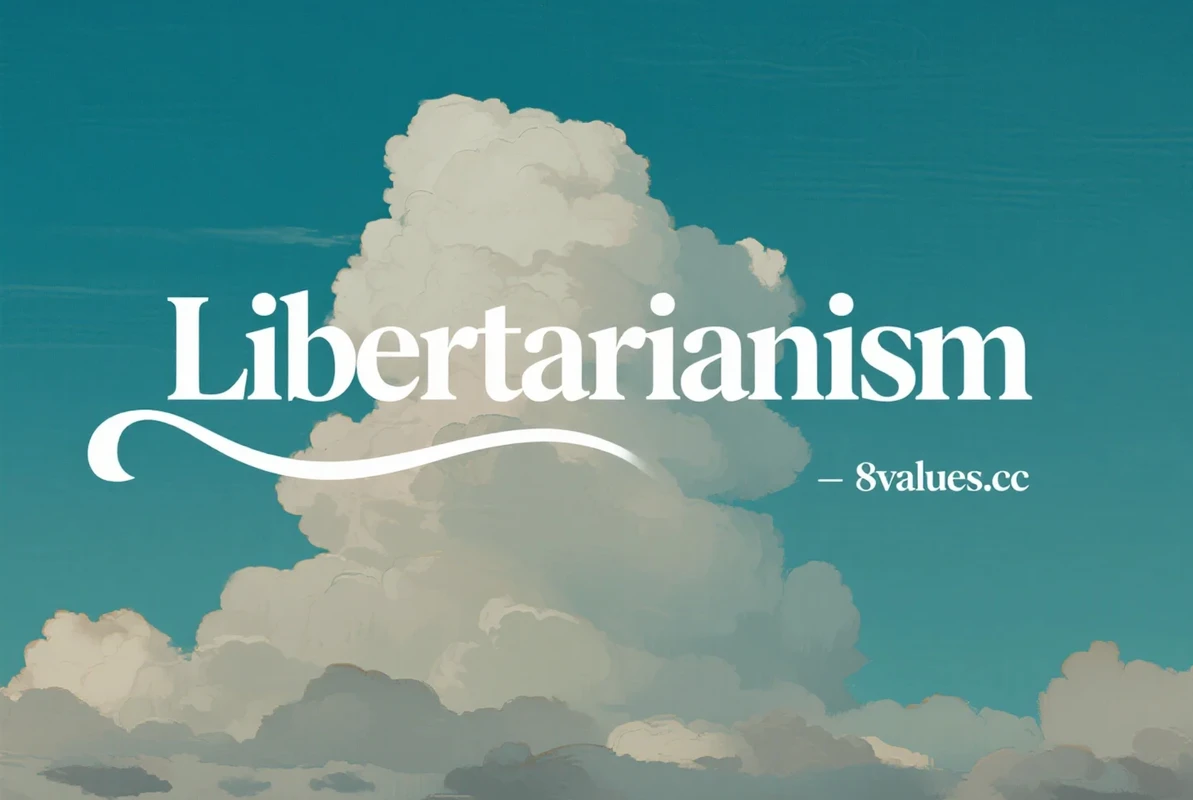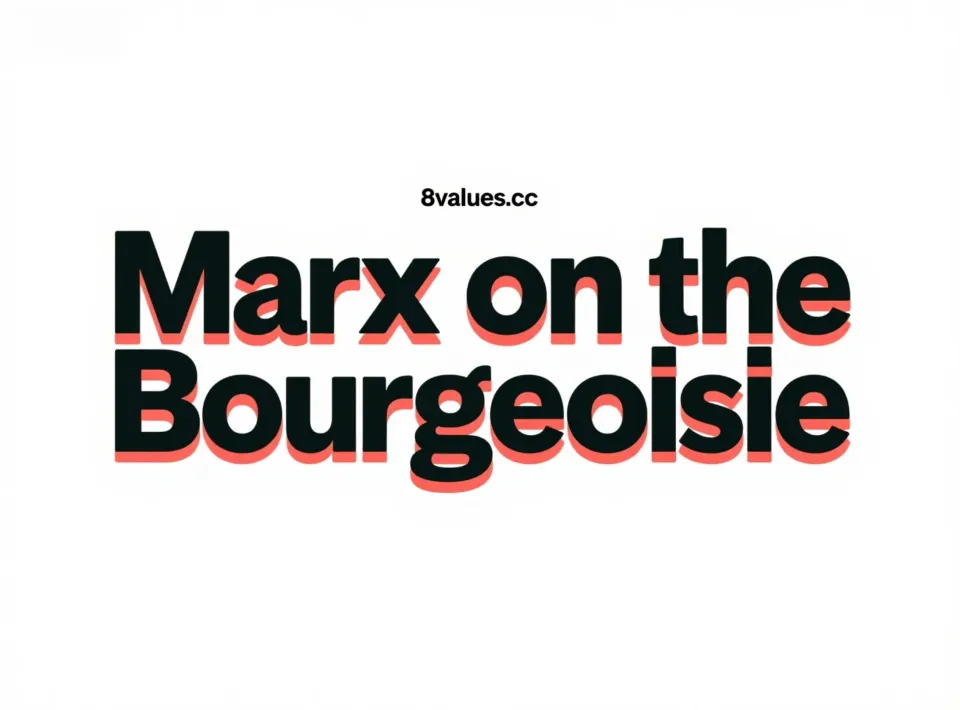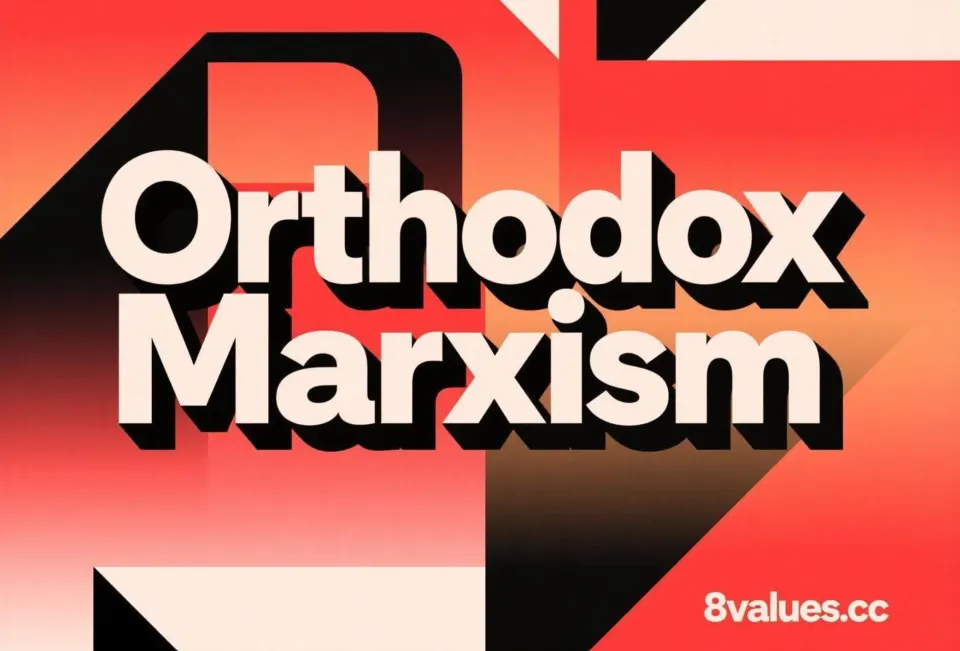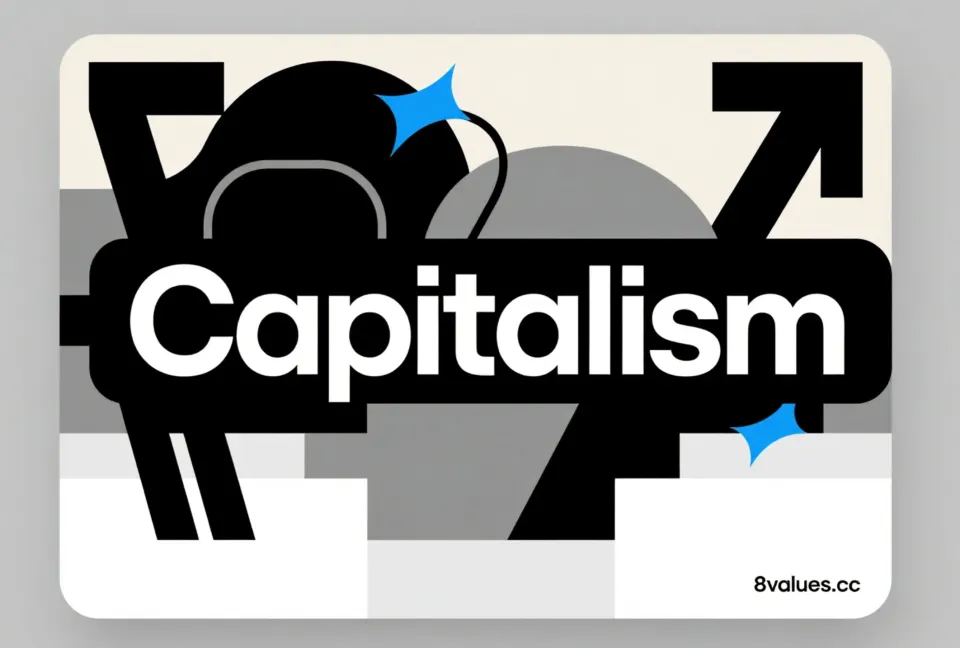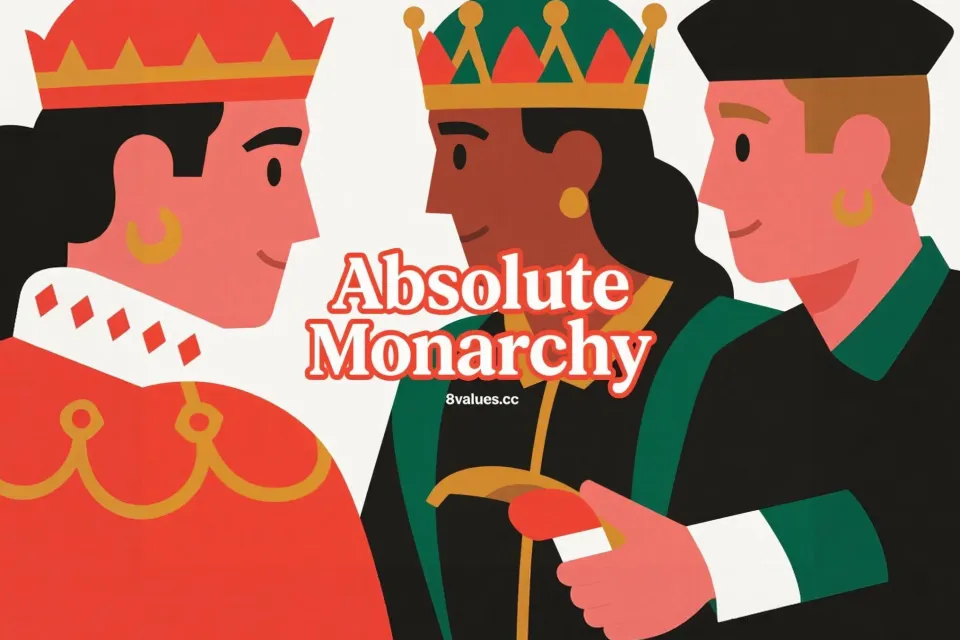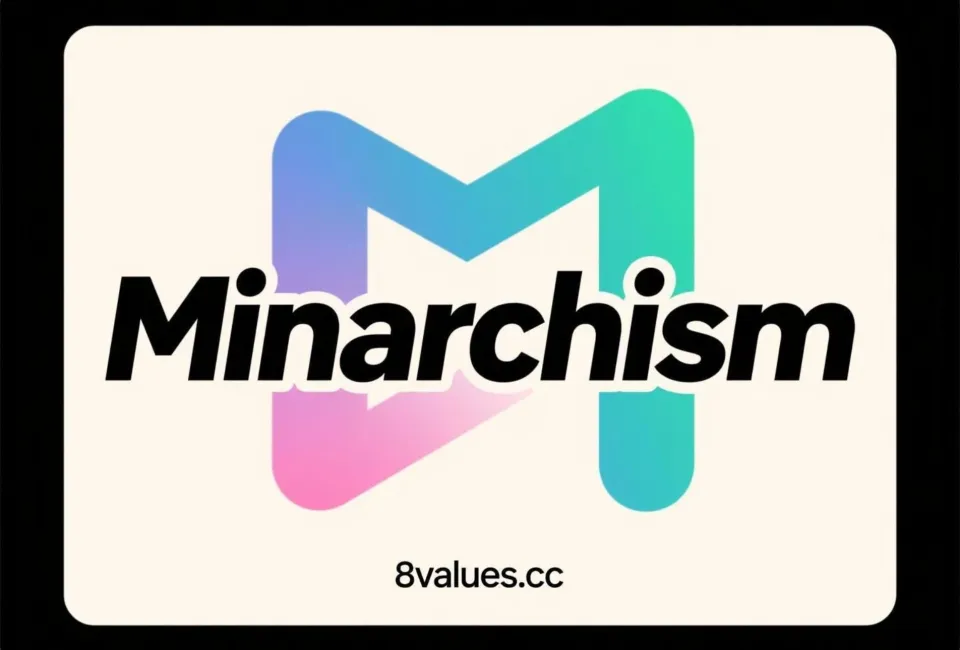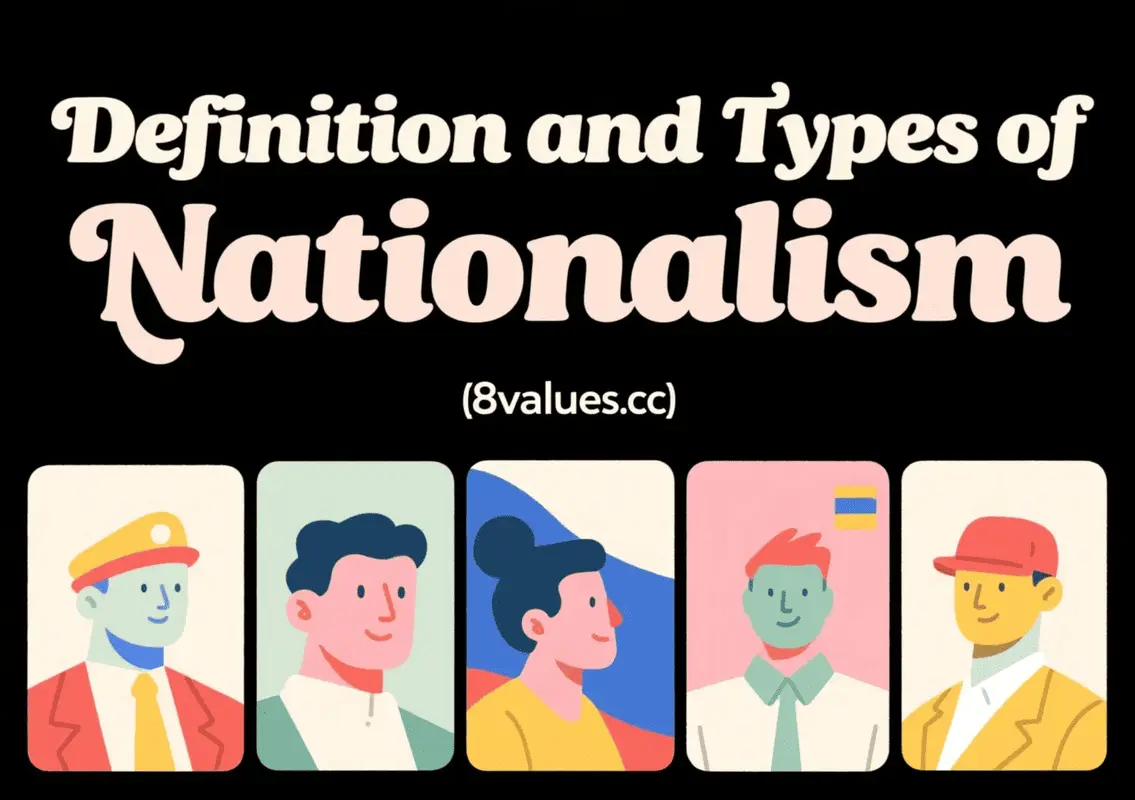Libertarianism | 8values Interpretation of ideological ideology in political tests
Explore the philosophical foundations, key propositions, historical evolution and its persistence on individual freedom, limited government and free markets. Learn about the position of this unique ideology in economic, social and foreign policy through the 8Values political test.
Libertarianism, a word that is increasingly attracting attention on the global political stage, is not only a political philosophy, but also a radical thinking about the relationship between individuals and states. In the 8Values Quiz 's political ideology test, many people will find their values highly compatible with "liberal willism." So, what exactly is liberalism? What does it advocate? What are its historical origins and theoretical schools? This article will take you into the deep philosophical thinking, helping you better understand its core principles, policy propositions, and its multi-dimensional influence in modern society. You can learn more about the interpretation of different political thoughts by visiting the 8Values ideological list .
The core principles and basic concepts of liberalism
Libertarianism is a political philosophy that regards individual freedom , autonomy and limited government as its core. Its most fundamental value lies in emphasizing that individuals have the maximum freedom to pursue their own goals without infringing on the same freedom as others.
The core concepts of liberalism mainly include:
- Non-Aggression Principle (NAP) : This is the cornerstone of liberalism. This principle holds that, except for self-defense, any act of proactively exerting force or threatening to others' personal or property is improper. Therefore, liberals oppose any form of coercion, including the government's intervention in personal life through taxes, regulations or other coercive means. A famous libertarian motto is "Don't hurt people and don't take their stuff."
- Self-Ownership : Libertarians believe that an individual has absolute ownership of himself, including the body, mind and labor results. This means that individuals have the right to make choices based on their own wishes without interference from others or the state. This right is gifted, not given by the government or society.
- Individual Rights and Responsibilities : Individuals are regarded as the basic unit of social analysis. Libertarianism emphasizes that individuals are fully responsible for their actions and choices. Individuals have the right to decide their own body, property and lifestyle as long as they do not infringe on the rights of others.
- Limited Government : The role of the government should be minimized and limited to the protection of the basic rights of citizens, such as life, freedom and property. The main function of the government is to prevent violence, theft and fraud through police, courts and national defense. Government intervention beyond these scopes, such as social welfare, economic regulation or moral legislation, is considered an infringement of individual freedom.
- Rule of Law : Liberalism advocates a free society under the legal framework. This means that individuals are subject to universally applicable legal rules rather than arbitrary orders. These rules are intended to protect individuals’ freedom to pursue happiness, rather than to pursue specific outcomes.
- Voluntary interaction and cooperation : Any interaction and cooperation between people must be voluntary and peaceful.
Libertarians are highly skeptical of authority and state power, believing that governments, even with good intentions, are often influenced by class dynamics and can lead to abuse of power.
The historical origins and evolution of liberalism: from enlightenment thought to modern wave
Liberalism is not an overnight system of thought, and its roots can be traced back to the enlightenment eras of the 17th and 18th centuries, deeply rooted in the tradition of classical liberalism .
- The foundation of the Enlightenment : John Locke's theory of natural rights (life, freedom, and property) laid the ideological foundation for liberal willism . Adam Smith's free economic theory emphasizes economic freedom and spontaneous order. Thomas Jefferson's Declaration of Independence combines the inalienable rights of individuals with the right to overturn governments that violate these rights. Thinkers such as David Hume and Thomas Paine also contributed to the early development of liberalism .
- The birth and evolution of the term : The term Libertarianism was first used in a metaphysical context by William Belsham in 1789. In the mid-19th century, the French anarchist communist Joseph Déjacque used the term “libertaire” in a political context, linking it to anti-state, anti-authoritative socialist movements, aiming to circumvent censorship. In the United States, the individual anarchist Benjamin Tucker promoted the term “libertarian” in the late 19th century.
- Transformation of modern meaning : In the mid-20th century, especially in the United States, in order to distinguish from the “liberalism” that was leaning towards big government and welfare policies at the time, thinkers such as Dean Russell and Murray Rothbard re-enacted the term “libertarianism”, giving it classical liberal meaning, emphasizing free markets and limited government.
- The prosperity of the 20th century : In the mid-to-late 20th century, thinkers such as Ayn Rand, Ludwig von Mises, Friedrich Hayek and Milton Friedman greatly shaped the modern face of liberalism . Robert Nozick's book Anarchy , State and Utopia in 1974 has attracted widespread attention from the academic philosophy community.
Major Theoretical Schools and Thinkers: The Multiple Surface of Liberalism
Libertarianism is not a single dogma, but a complex system composed of multiple schools of thought and famous thinkers. These schools have subtle differences in government roles, property rights, and the best ways to achieve freedom.
Classical Liberalism
As the direct ancestor of liberalism , classical liberalism emphasizes individual freedom, private property and limited government . John Locke, Adam Smith and Thomas Jefferson are their representatives. They believe that the main responsibility of the government is to protect these rights rather than interfere with economic and social life.
Right-Libertarianism
This is the mainstream form of modern liberalism , especially in the United States. It emphasizes self-ownership and widespread private property rights , including the privatization of land, infrastructure and natural resources. Its representative thinkers include:
- Murray Rothbard : an outstanding figure in the Austrian School of Economics, developed anarchy capitalism , advocated the complete abolition of the state, and all services were provided by the private market. His theory derives the principle of non-aggression from self-ownership and believes that individual rights are property rights.
- Ayn Rand : Founder of Objectivist philosophy, advocates radical individualism and laissez-faire capitalism, and believes that the pursuit of personal happiness is the highest morality. Although she does not call herself a libertarian , her ideas have a profound impact on the movement.
- Robert Nozick : Professor at Harvard University, bringing libertarianism into the mainstream academic community through the book Anarchy, State and Utopia (1974). He advocated the "smallest country" (or "night watch country"), believing that its legitimacy lies in the non-infringement of individual rights. His "rights and qualification theory" emphasizes that the justice of property distribution depends on the historical process of its acquisition and transfer, not the final result.
- Minarchism : Advocates that the government should be restricted to the provision of necessary protective services such as police, courts and national defense, while other matters are handed over to the private sector. Ain Rand himself is a little governmentalist.
Left-Libertarianism
Left-wing liberalism was initially closely related to anarchic communism and anti-authoritative socialist movements in history. Contemporary left-wing liberalism holds an egalitarian view on the distribution of external natural resources (such as land, water, and minerals) on the basis of affirming self-ownership . They believe that those who privatize natural resources should pay compensation to the society or ensure that “enough and equally good” resources are left for others. Philippe Van Parijs and Michael Otsuka are representatives of this genre.
Consequentialist Libertarianism
This school proves the libertarian principle by the beneficial consequences of policy. It believes that free markets and individual rights can maximize social benefits and promote peace and prosperity.
- Friedrich Hayek : An important figure in the Austrian economic school, emphasizing the importance of "spontaneous order" and dispersed knowledge, believing that the government's central plan would hinder social efficiency.
- Milton Friedman : A leader of the Chicago School of Economics, advocates monetaryism, free markets and reduced government regulation, and advocates negative income taxes and school vouchers.
- Ludwig von Mises : A core figure in the Austrian economic school, studying human economic behavior through "human behavior" and emphasizing the role of sound currency in preventing inflation and economic stability.
Other genres
- Neoclassical Liberalism : While emphasizing economic rights, it also clearly focuses on social justice and is committed to avoiding poverty.
- Teleological Libertarianism : centered on virtue, and believes that the libertarian system can promote individuals to develop virtues and achieve human prosperity.
- Contractarian Libertarianism : The argument that moral principles originate from people's voluntary agreements, and rational individuals will agree to the framework of limited government and individual rights .
Although each has its own focus, these schools are skeptical of the excessive intervention of the state and are committed to maximizing personal freedom .
Libertarian Policy Propositions: Economic and Social Dimensions
The core principles of liberalism are transformed into specific policy propositions, covering multiple areas such as economy, society and diplomacy, aiming to ensure that individuals enjoy maximum freedom in all aspects.
Economic Policy: Free Markets and Minimum Intervention
In the economic field, liberals generally advocate free market capitalism and advocate that governments should minimize their intervention.
- Tax cuts and anti-welfth countries : The vast majority of liberals oppose mandatory taxation and government welfare policies. They believe that taxation is “legal theft” and that mandatory wealth redistribution infringes on individual property rights. They tend to maintain only extremely low tax rates to fund the necessary functions of limited governments such as police, courts and defense.
- Removal of regulation and free trade : Libertarians support the removal of regulation on commerce, manufacturing, transportation and trade, believing that this will promote economic prosperity and innovation. They generally oppose antitrust laws, insider trading bans and price control policies.
- Private property rights : Individuals have absolute rights over the property they have legally obtained, and the government has no right to requisition or redistribute it at will. They regard economic inequality as a natural result of the operation of free markets , and are acceptable as long as they do not harm others.
- Sound currency : Influenced by the Austrian economic school, many libertarians advocate a sound monetary system based on tangible assets such as gold and silver. They believe that government control over currency will lead to inflation and economic distortions, which will damage personal wealth and economic freedom.
Social Policy: Defend Personal Freedom
In the social field, liberals generally support individual freedom and oppose government intervention in moral or personal choices in individual lives.
- Freedom of speech and anti-censorship : Libertarians take an absolute stance on freedom of speech and oppose any form of restrictions imposed by the government on speech, art or pornography.
- Personal Choice and Lifestyle : They support personal choices such as decriminalization/legalization of drugs, same-sex marriage, voluntary sexual relationships, assisted deaths, etc. They believe that the government should not pass legislation to enforce a certain moral concept.
- Civil Rights and Anti-Discrimination : Libertarians believe that all people are equal before the law and oppose discrimination based on race, gender or sexual orientation. However, they oppose the government's intervention in the choice of private enterprises or individuals through compulsory affirmative measures or anti-discrimination laws, believing that this violates private property rights and freedom of association. They argue that social equality should be achieved through social voluntary actions rather than government coercion.
- Oppose the conscription system : Libertarians generally oppose compulsory military service, believing that it violates self-ownership and personal freedom .
Liberalism’s Foreign Policy and International Relations: A Non-Interventionist Position
In the field of foreign policy, liberals generally pursue non-interventionism and strongly oppose military intervention, imperialism and war.
- Anti-war and anti-imperialism : They believe that government military operations often have unexpected and harmful consequences, often with suspicious motives. Therefore, liberalists generally question the rationality and benefits of foreign military intervention. For example, liberal institutions such as the Cato Institute have clearly opposed it in their position on the Iraq War.
- Open borders and free immigration : The vast majority of liberalists strongly support open borders and free immigration. They believe that the government's forced arrest of innocent people from moving violates people's right to free migration. In addition, immigration restrictions also violate the right of citizens of their own country to freely interact and cooperate with foreigners. For example, libertarian Jason Brennan pointed out in his book that if free immigration is not supported, any claim to care about social justice is just a disguise.
- Free trade : In terms of international trade, liberals defend global free trade . They oppose government subsidies and all import taxes for domestic enterprises, believing that these policies mandatoryly interfere with people's freedom to exchange legally obtained goods and cause harm to domestic and foreign producers and consumers.
However, there are also differences within liberalism on its stance on foreign intervention. Some believe that defending the freedom and rights of others (including the use of force) is permissible, which may provide a defense for certain external interventions. But more people question the legitimacy and benefits of government actions, especially given that military interventions have often historically backfired.
It is worth mentioning that in terms of view on the Israel-Gaza conflict, libertarian commentator Dave Smith once pointed out that if Israel's actions in Gaza are supported, they should no longer call themselves "pro-life" because such policies lead to the death of babies. This reflects the liberalists ’ position on moral and non-aggressive principles , and emphasizes the avoidance of civilian casualties even in the face of complex international conflicts.
Internal disputes and major criticisms of liberalism
Although liberals are united under the banner of individual freedom and limited government , there are also many debates within them and face sharp criticism from the left and right wings.
Internal dispute: The diverse choices of the road to freedom
- The battle between small government and anarchic capitalism : This is one of the most core differences within liberalism . Minarchists believe that the government should be limited to providing the most basic protective services (such as the police, the military and the judiciary). Anarcho- Capitalists advocate the complete abolition of the state, and all services should be provided by the private market, believing that any monopoly of the government will lead to unreasonable restrictions.
- The absoluteness of property rights and Locke's Dan : Regarding the acquisition of private property rights , Locke's "dan" (proviso), that is, the acquisition of property should leave "enough and equally good" resources for others, has sparked widespread discussion within liberalism . Right-wing libertarians (such as Robert Nozick) often interpret this as not to make others worse, while left-wing libertarians advocate stricter equal distribution.
- Political Alliance Strategy : Libertarians are often described in the political spectrum as conservative on economic issues and free on social issues. Therefore, they sometimes allied with conservatives on economic and gun control issues, and had similar positions with liberals on social issues. Foreign policy, however, is a subject of heated debate among liberalists , with many opposing the belligerent policies of the conservatives but also questioning the positions of the United Nations and liberals. Some libertarians even refuse to align with any non- liberalist party.
- Tyler Cowen proposed the State Capacity Libertarianism, advocating that the government needs to have certain capabilities to promote the development of free markets and solve problems such as climate change, which is different from the non-interventionism of traditional liberalism .
Key Criticism: Challenges and Limitations
Libertarianism, while attractive, has also been widely criticized from the left and right wings for its radical claims.
- Social inequality and vulnerability protection : Critics believe that thorough free markets and limited governments will lead to increased social inequality, and vulnerable groups (such as children and the poor) will lack education, medical care and basic living security. They point out that libertarians ignore the impact of poverty and loss of power on individual freedom.
- Environmental issues and externalities : Libertarianism seems to be unable to respond to complex social problems such as environmental pollution and climate change. Due to the emphasis on individual freedom and private property rights , its theory is difficult to effectively solve the problem of negative externalities (i.e., the negative impact of individual behavior on third parties).
- "The Ideology of the Rich" : Some critics regard libertarianism as the "ideology of the Rich" and believe that its claims are nothing more than to justify and continue to maintain the status of the top people in the existing social class. They believe that libertarians often ignore support for vulnerable groups, public utilities and tax cuts for the rich.
- Ignore positive freedom : Critics point out that liberalism overemphasizes “negative freedom” (freedom without interference) and ignores “positive freedom” (freedom to realize its potential). For example, a poor child, even without interference, cannot truly choose his life due to lack of resources.
- Historical Injustice and Property Acquisition : There is a view that property acquisition often involves historical injustice, and the principle of liberalism requires that correction of these injustices may require a large amount of government intervention, which is contrary to its limited government claims.
- Scepticism about democracy : liberals are generally skeptical of the democratic system and are worried about the emergence of "majority tyranny". They believe that voters are generally lacking in information, ignorance and biased, and democratic deliberation has little effect on improving this situation.
The modern influence and future prospects of liberalism
Liberalism, as a unique political philosophy , has shown growing influence in the contemporary world, especially in the context of pursuing personal freedom .
Significant influence in modern society
- Role in American politics : In the United States, liberalism has grown increasingly influential. About 10 to 30% of American voters consider themselves "economic conservative and socially free" libertarians . The Libertarian Party is the third largest party in the United States. Within the Republican Party, political figures such as Ron Paul, Justin Amash and Gary Johnson promoted liberalism , such as the Tea Party movement, which also had a significant liberalist component.
- Rise on the International Stage : In 2023, Javier Milei was elected President of Argentina, becoming the world's first head of state to claim to be liberalism . His policy propositions, including substantial cuts in government spending and promoting free market mechanisms, mark an important milestone in liberalism in global politics.
- Thought Think Tank and Media : The Cato Institute is a well-known liberal think tank in the United States, committed to influencing government policies and promoting the concept of free markets . Reason magazine advocates tolerance, free society and cultural diversity.
- Silicon Valley’s resonance : Many Silicon Valley billionaires, such as Peter Thiel and Elon Musk, also call themselves libertarians . They endorse capitalist solutions provided by liberal willism to deal with problems arising from capitalism itself.
Future Outlook: Challenges and Adaptations
Faced with complex challenges such as climate change and global epidemics, traditional liberalist ideas also face the need for self-innovation. The "national capacity liberalism" proposed by Taylor Cowen recognizes that governments need to have certain capabilities in certain areas to promote market development and solve problems that traditional liberalism is difficult to deal with.
At the same time, the emergence of "small-L libertarians " or "philosophical libertarians " shows that some libertarians pay more attention to ideas rather than partisanship and are willing to compromise with other political groups to achieve the goal of personal freedom . This may herald the future of liberalism will be more diffuse, more inclusive, and constantly evolving in interactions with other ideas.
summary
If you are curious about your political stance, try the 8Values political test , which can help you understand more clearly which political ideology your values match. 52 detailed results, including liberalism, can be found on the 8Values Ideology List page . In addition, you can find more articles on political theory and its real-life applications in our blog .
